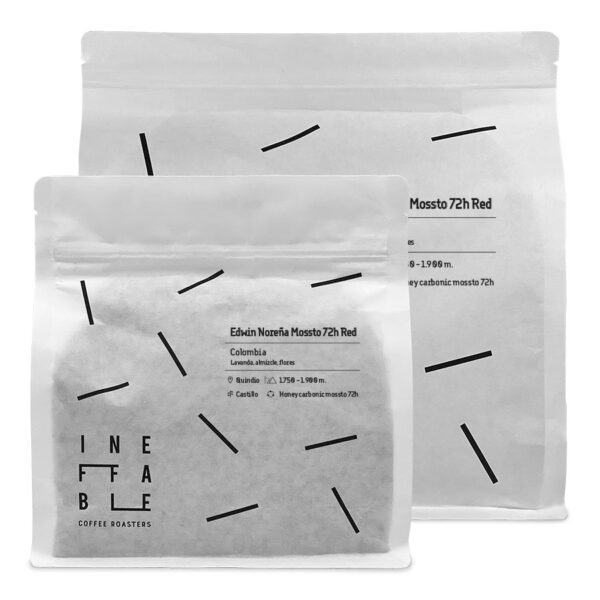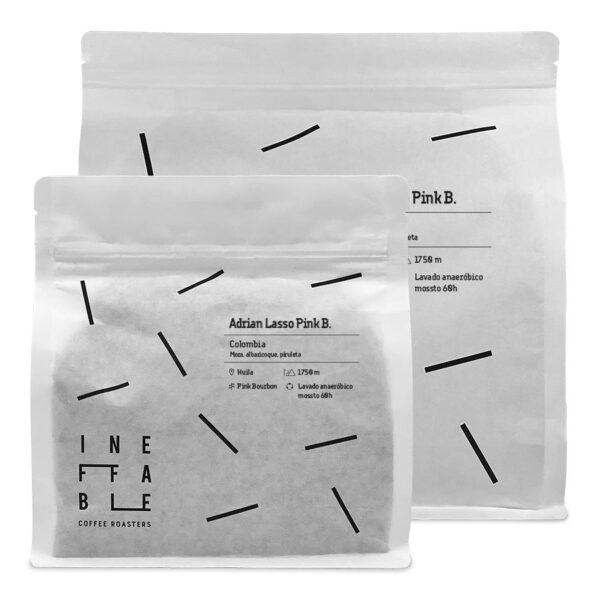10 Coffee Benefits Backed by Science
The English social psychologist Henry Tajfel is known for developing the Social Identity Theory.
This theory states that the groups that we belong to, gives us a sense of who we are, of our perceived worth and are the foundations of our self-esteem.
The idea, simply put, is as follows: a person needs to adhere to a group with which he shares certain values. His identity depends on the group to which he belongs and stands in contrast to other groups.
The values of the group to which he belongs are raised above those with which he compares himself.
This does not mean that the values of the group to which he belongs are better or more correct than others.
They are better, in our eyes, because we need to develop a positive identity.
Simply said, what we have is the best not because it is better, but because it is ours.
From this perspective we can understand why we defend the things that we identify with. It is the basis of our identity, but also of many prejudices.
There have been and still are many prejudices around coffee. Those of us who love it, we defend it.
Those who don’t, vilify it. But what lies beyond opinions? What does science have to say about it?
What interests us is to find out what health benefits coffee has and what harms, if any.
Science-backed Benefits of Coffee

The popular way of consuming coffee in Spain, for example, is linked to torrefacto coffee, milk and sugar. These three additions may be harmful to our health.
We can consider torrefacto an addition because it is the process of caramelizing the coffee seeds with sugar while they are being roasted.
Hence, we are going to speak about the benefits of black coffee, and we are going to look at the scientific studies that support these benefits.
Since caffeine is the most important active component of coffee, the possible benefits of decaffeinated coffee are beyond our reach.
Coffee is the main source of antioxidant in the diet of the modern Western World. Thus, there are many studies to account for the benefits and harms of coffee.
So, the next time someone brings up the subject of whether coffee is good or bad -your brother-in-law, for example- you will have the arguments to end this discussion. And keep enjoying your coffee.
Nutritional Value and Chemical Composition of Coffee
Before we dive into the benefits of coffee for our health, let’s see what’s the chemical composition and nutritional value of a filtered Arabica coffee cup (source: Ministry of Agriculture, Fisheries and Food).

1. Coffee Increases Energy Levels
Another study on golf players showed that caffeine consumption, before and during the tournament, improved performance. It has also been linked to a subjective increase in energy levels and a reduced feeling of fatigue.
This is because caffeine blocks the receptors for a neurotransmitter called adenosine. This neurotransmitter is related to the feelings of sleep and tiredness.
Blocking adenosine receptors increases the levels of other neurotransmitters, which help regulate energy levels in the brain. Among these is dopamine, a neurotransmitter related to motivation.
2. Caffeine can help with brain health
Regular caffeine consumption results in a lower risk of developing Parkinson, according to a review of 13 studies. Not only this, but coffee consumption also protects against the progression of Parkinson.
The more coffee we consume, the lower the risk of Alzheimer. That is what the review of 11 studies in which more than 29,000 people participated concluded.
Other studies have shown that moderate coffee consumption is also associated with a lower risk of dementia and cognitive decline.

3. Coffee consumption is linked to a lower risk of depression
Another study proposes that drinking four cups of coffee a day is associated with a lower risk of depression compared to drinking just one.
And a study conducted with 200,000 people showed that drinking coffee is linked to a lower risk of suicide.
We should take these studies as indications that coffee may actually contribute to our happiness.
But we do not recommend that you drink eight cups of coffee every day. You may be happier… but you’ll be going so fast you won’t even notice it!
4. Coffee can contribute to our heart health
But studies say that drinking three to four cups of coffee a day is associated with a lower risk of heart attack. This study indicates that the risk is reduced by 21%.
Another study involving 21,000 people showed that coffee consumption significantly reduced the risk of cardiac arrest.
Though caffeine also affects our blood pressure. So, if you have a condition related to this or similar, you should be careful with caffeine.
Enjoy seasonal coffee, visit our shop
- Filter & EspressoCold BrewSpecial process
Edwin Noreña Red – Colombia – Mossto 72h Co-fermented
36,00€ – 132,00€ VAT included - Filter & Espresso
Oscar Hernandez Wush Wush – Colombia – Thermal Shock
36,00€ – 132,00€ VAT included - Filter & EspressoCold BrewSpecial process
Adrian Lasso Pink B. – Colombia – Washed anaerobic 60h
23,00€ – 84,00€ VAT included
5. Coffee consumption may be linked to a lower risk of type 2 diabetes
A review of 30 studies concluded that each cup of coffee consumed in a day reduces the risk of developing type 2 diabetes by 6%.
Additionally, coffee is rich in antioxidants, which can positively affect insulin sensitivity, inflammation, and metabolism. These functions are related to the development of type 2 diabetes.
6. Caffeine can help with weight control
This may sound obvious… but a review of 12 studies has associated higher coffee intake with lower body fat in men . In women, other studies have also shown the relationship between caffeine and less body fat.
Whether it is because caffeine activates us and gets us moving or because it is related to less fat accumulation and better gut health, it can be an ally for weight loss.
The caffeine, in these cases, could come from other sources, such as green coffee or a dietary supplement.

7. May Protect Against Liver Disease
Another study links more than two cups of coffee per day to lower rates of liver scarring and liver cancer in people with liver disease.
In people without a liver disease, coffee is linked to a decreased liver stiffness. This is a measurement used by health professionals to assess fibrosis.
8. Coffee Is the Main Source of Antioxidants in the Modern Western Diet
Diferentes estudios han mostrado que el café es la principal fuente de antioxidantes en nuestra dieta, por encima de frutas y verduras.
En ocasiones pensamos que el café es solo agua negra. Con un delicioso aroma y sabor, pero sin nutrientes. Nada más alejado de la realidad. Muchos de los nutrientes de cada grano de café acaban en nuestra taza. Lo que significa que contiene una cantidad significativa de vitaminas y minerales.
Una taza de café contiene:
- El 6% de la dosis diaria recomendada de ácido pantoténico (vitamina B5)
- El 11% de la dosis diaria recomendada de riboflavina (vitamina B2)
- El 2% de la dosis diaria recomendada de niacina (B3) y tiamina (B1)
- El 3% de la dosis diaria recomendada de potasio y manganeso.
Y si te tomas un par de tazas al día, el efecto es acumulativo.

9. Coffee Can improve Athletic Performance
For this reason, many athletes use it as a performance aid and to increase energy levels.
Another study conducted on 126 adults concluded that drinking coffee improved physical performance and walking speed. Even after parameters such as age, body fat levels, and regular exercise were accounted for.
10. Coffee can increase our longevity
A review of 40 studies concluded that drinking two to four cups of coffee a day is linked to a lower risk of death. And this remains true independent of factors such as age, weight or alcohol consumption.
The conclusions of a study on 1,567 people reinforce these results. After a follow-up at 12 and 18 years with the participants, coffee consumption (with caffeine) was associated with a lower risk of death. Even just one cup of coffee a day lowers the risk of cancer death.

So… how much coffee is healthy to drink?
This is not to say that starting tomorrow you should drink a coffee every half hour. Coffee can have a diuretic effect on the body when it exceeds 500mg of caffeine (about 5 cups) . This can cause dehydration, another of the harms attributed to coffee.
But if you drink the coffee diluted with water (such as an Americano), the lower water/caffeine ratio makes your body hydrate similarly to drinking water.
In fact, a study was carried out with 50 people who drank a lot of coffee every day (800 ml.). It showed that they were just as hydrated as if they had drunk the same amount of water.
Coffee affects each person differently and excessive caffeine consumption can cause physical and psychological discomfort. Therefore, the maximum recommended dose for healthy people is around 400-500 ml of coffee per day (about 4 or 5 cups).
Disclaimer:
It is not a recommendation for consumption nor is it intended to replace medical advice, diagnosis or treatment.
Whether you consider yourself healthy or suffering from an ailment, consult a qualified medical professional regarding the amount and manner of coffee consumption.
If you think you may be having a medical emergency, call your doctor right away.





